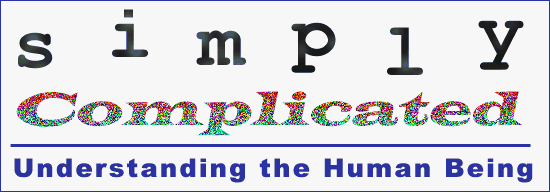Behavior and Religion
The group guides behavior by sanctioning or censuring individual acts that it feels are either not in the group's interest or in an individual's interest.
Groups can be highly structured and very formal. That is, the rules for guiding behavior can become intricate and very strong, involving people over much distance and much time. Political systems are such groups.
When the behavior-controlling aspect of groups meets up with the human tendency to both fear the unknown and wish to understand it, religious groups appear. Like all groups, the religious group controls the behavior of its members, but it also serves
o explain the intangible to its members and protect them from it. In fact, this is the main source of the religious group's power.
All cultures have some kind of religion because all humans can ponder things that are not directly related to their immediate survival. They have brains that allow them to be aware of things they cannot see or taste or see or touch or hear. Human thinking is flexible and open-ended; that is, humans can imagine anything.
The part of the mental process that allows humans to adapt to their environment in such inventive ways is that they can reason; they can figure out how things work. The wheel is an example of how humans can reason out which shape an object should be so it would more easily move.
Another aspect of life that humans can imagine is the future (which has as its ending each individual's own death). And if a person's life isn't very happy, the future can also mean more unhappiness.
This is where hope comes in. We are aware of the future (unlike most if not all other creatures) and we know that what we feel right now could stay the same or it could change. We know we will die someday in that future, too. We hope that things will change for the better or not change for the worse or that our dying won't be the end of us. We don't understand death. We don't understand changes we don't seem to have any control over. It's very scary.
All of us are scared of the future. It's what we do even though we're scared that makes the difference.
Those things that humans do not understand -- and especially those things that threaten their existence -- make up a mighty powerful force. Humans, then, constantly search for explanations for such things. Lightning and thunder, drought, disease, badness in people...these are life-and-death matters and must be dealt with, but how?
In any society some individuals will give themselves over to explaining such phenomena. These people present explanations for natural phenomena. Their explanations must be considered valid by the membership for their stature to rise within the group.
hose who believe these explanations soon form a subgroup within the larger group. The power of a religious subgroup grows for two reasons most important to humans: the need for group cooperation, and the need to have explained those things that they cannot understand directly through their senses. Religions offer explanations and protection for its membership.
Religions are usually an extension of some group or group structure prized by its members. For example, a political system like feudalism, with its "lords" and "kingdoms," can be extended to a religious view. The feudal system protected and controlled
the populace as well as explained the why's and wherefor's of death.
Any type of group can be used as a model for a religious structure, including the closest of groups: the family...with its father, mother, child pattern.
Any dominant group, whether it be religious, political, family, etc., wields a great deal of power. Such power requires something to balance it. This balance must come from individuals in the groups protecting themselves from the group. Groups exhibit
behaviors and tendencies much like individuals do, and these are a reflection of the strongest personalities in the group. Individuals must question the group's intentions at least periodically to see if a balance of motives is evident. Blindly following
a group is as bad for the group as it can be for the individual.
Next Chapter
Title Page

